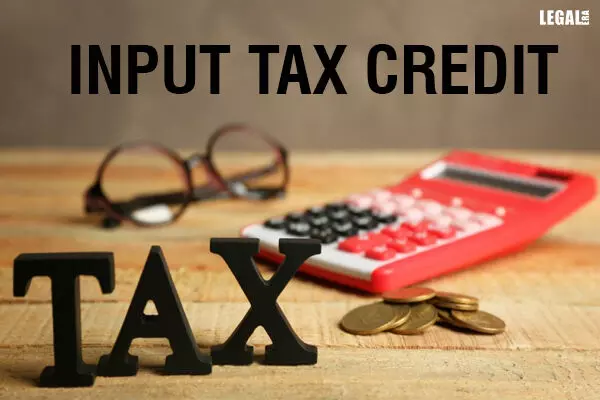- Home
- News
- Articles+
- Aerospace
- AI
- Agriculture
- Alternate Dispute Resolution
- Arbitration & Mediation
- Banking and Finance
- Bankruptcy
- Book Review
- Bribery & Corruption
- Commercial Litigation
- Competition Law
- Conference Reports
- Consumer Products
- Contract
- Corporate Governance
- Corporate Law
- Covid-19
- Cryptocurrency
- Cybersecurity
- Data Protection
- Defence
- Digital Economy
- E-commerce
- Employment Law
- Energy and Natural Resources
- Entertainment and Sports Law
- Environmental Law
- ESG
- FDI
- Food and Beverage
- Gaming
- Health Care
- IBC Diaries
- In Focus
- Inclusion & Diversity
- Insurance Law
- Intellectual Property
- International Law
- IP & Tech Era
- Know the Law
- Labour Laws
- Law & Policy and Regulation
- Litigation
- Litigation Funding
- Manufacturing
- Mergers & Acquisitions
- NFTs
- Privacy
- Private Equity
- Project Finance
- Real Estate
- Risk and Compliance
- Student Corner
- Take On Board
- Tax
- Technology Media and Telecom
- Tributes
- Viewpoint
- Zoom In
- Law Firms
- In-House
- Rankings
- E-Magazine
- Legal Era TV
- Events
- News
- Articles
- Aerospace
- AI
- Agriculture
- Alternate Dispute Resolution
- Arbitration & Mediation
- Banking and Finance
- Bankruptcy
- Book Review
- Bribery & Corruption
- Commercial Litigation
- Competition Law
- Conference Reports
- Consumer Products
- Contract
- Corporate Governance
- Corporate Law
- Covid-19
- Cryptocurrency
- Cybersecurity
- Data Protection
- Defence
- Digital Economy
- E-commerce
- Employment Law
- Energy and Natural Resources
- Entertainment and Sports Law
- Environmental Law
- ESG
- FDI
- Food and Beverage
- Gaming
- Health Care
- IBC Diaries
- In Focus
- Inclusion & Diversity
- Insurance Law
- Intellectual Property
- International Law
- IP & Tech Era
- Know the Law
- Labour Laws
- Law & Policy and Regulation
- Litigation
- Litigation Funding
- Manufacturing
- Mergers & Acquisitions
- NFTs
- Privacy
- Private Equity
- Project Finance
- Real Estate
- Risk and Compliance
- Student Corner
- Take On Board
- Tax
- Technology Media and Telecom
- Tributes
- Viewpoint
- Zoom In
- Law Firms
- In-House
- Rankings
- E-Magazine
- Legal Era TV
- Events
Calcutta High Court: Cancellation of Registration of Supplier with Retrospective Effect Without Considering Documents Cannot be Basis for Rejecting ITC

Calcutta High Court: Cancellation of Registration of Supplier with Retrospective Effect Without Considering Documents Cannot be Basis for Rejecting ITC
The Calcutta High Court by its single judge Justice Krishna Rao has ruled that cancellation of registration of a supplier with retrospective effect cannot be a basis for a rejection of an ITC (Input Tax Credit) by the authority without considering the documents relied by the person i.e., the buyer.
In the present case, the Petitioner (assessee) being the Registered Taxable Person (RTP) claimed credit of input tax against supply made from a supplier. The Petitioner had approached the High Court challenging the order issued by the Respondent authorities refusing to grant the benefit of Input Tax Credit (ITC) on purchase from supplier and also asking the Petitioner to pay penalty and interest under the relevant provisions of Goods and Services Tax, Act 2017 (GST Act).
Per contra, the respondent contended that on inquiry, they came to know that the supplier from whom the Petitioner claimed to have purchased the goods in question were all fake and non-existing and the bank accounts opened by the supplier were based on fake document and the claim of the Petitioner of ITC were not supported by any relevant document. It was the case of the Respondents that the registration of the supplier in question has already been cancelled with a retrospective effect covering the transaction period of the Petitioner.
After considering the submission, the Court found that at the time of the transaction, the name of the supplier as a registered taxable person was already available with the Government record and the Petitioner had paid the number of purchased articles as well as tax on the same through bank and not in cash.
The Court noted, that it was not the case of the respondents that there is a collusion between the petitioner and supplier with regard to the transaction.
The Court considered the contention of the petitioner that the transactions in question were genuine and valid and relied upon all the supporting relevant documents required under law, the petitioner with due diligence verified the genuineness and identity of the supplier and name of the supplier as registered taxable person was available at the Government Portal showing its registration as valid and existing at the time of transaction.
In this regard, the Court observed, “This Court finds that without proper verification, it cannot be said that there was any failure on the part of the petitioner in compliance of any obligation required under the statute before entering into the transactions in question. The respondent authorities only taking into consideration the cancellation of registration of the supplier with retrospective effect have rejected the claim of the petitioner without considering the documents relied upon by the petitioner.”
Therefore, the Court concluded that without proper verification, it cannot be said that there was any failure on the part of the Petitioner in compliance with any obligation required under the statute before entering into the transactions in question. Accordingly, the Court disposed of the plea.


